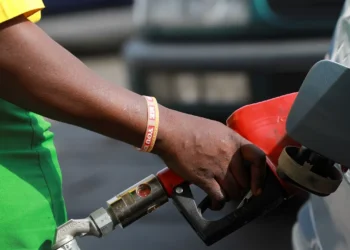Nigeria’s Debt Management Office (DMO) has reported that the country’s total public debt reached ₦87.38 trillion ($113.42 billion) at the end of the second quarter of 2023, marking a significant increase of 75.29% compared to the ₦49.85 trillion recorded at the end of March 2023. This staggering rise in debt includes the ₦22.71 trillion Ways and Means Advances extended by the Central Bank of Nigeria to the Federal Government.*
The DMO, led by Director-General Patience Oniha, explained, “Nigeria’s total public debt stock as at June 30, 2023, was ₦87.38 trillion ($113.42 billion), which comprises the total domestic and external debts of the Federal Government of Nigeria, the thirty-six states, and the FCT. The major addition to the Public Debt Stock was the inclusion of the ₦22.712 trillion securitized FGN’s Ways and Means Advances.”
This growth in debt is attributed not only to the inclusion of the Central Bank’s Advances but also to new borrowings by both the Federal Government and sub-national entities from various sources. The DMO noted that ongoing reforms and potential recommendations from the Fiscal Reform and Tax Policies Committee are expected to impact debt strategy and enhance debt sustainability.
Previously, the DMO had projected that Nigeria’s public debt could reach ₦77 trillion after the National Assembly’s approval of former President Muhammadu Buhari’s request to restructure the CBN’s Ways and Means Advances a financial facility used to cover government budget shortfalls.
Domestic debt currently constitutes 61.95% of the total debt, with external debt making up the remaining 38.05%. An alarming concern highlighted by the DMO is the projected FGN Debt Service-to-Revenue ratio of 73.5% for 2023, which poses a significant threat to debt sustainability. It indicates that the country’s revenue cannot sufficiently support increased borrowing levels. To achieve a sustainable FGN Debt Service-to-Revenue ratio, the government must substantially increase its revenue generation, reaching approximately ₦15.5 trillion from the projected ₦10.49 trillion in the 2023 Budget.
The DMO emphasized that the government should focus on revenue generation through extensive initiatives and reforms, including the Strategic Revenue Growth Initiatives, to raise Nigeria’s tax revenue to GDP ratio to match its peers.
With the government nearing its self-imposed debt limit of 40%, the DMO suggests that to reduce borrowing and budget deficits, the private sector should be encouraged to fund some capital projects through public-private partnership schemes.
Economic Consequences and Analyst Opinion:
The rapid increase in Nigeria’s debt has raised concerns about the country’s fiscal sustainability and its ability to service the growing debt burden. As debt levels surge, the consequences could include a weaker Naira and challenges for businesses, ultimately affecting the country’s GDP growth.
Speaking with Victoria Olukorede an Economist Analyst in her words “The recent steps taken by the government, such as the removal of fuel subsidies and efforts to address the exchange rate issues, along with the appointment of a tax reform committee, are positive signals for attracting foreign investment and increasing the country’s total revenue. However, it is crucial for Nigeria to diversify its revenue sources, enhance tax collection, and implement effective fiscal policies to navigate the challenges posed by the mounting debt levels.”











